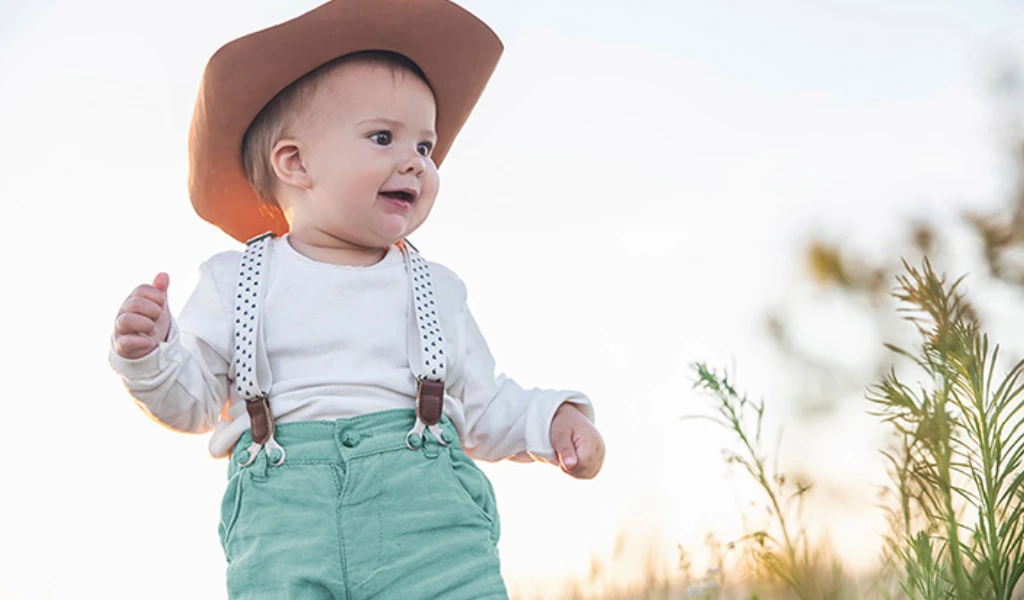Danish last names are based on the father’s first name, with the addition of ‘sen’ to indicate the son of the father.
Danish last names usually come from a person’s father or grandfather. These last names, called patronymic names, are widely used in countries like Denmark, Norway, and Sweden. Some Danish surnames also have origins in other Scandinavian and German languages because of Denmark’s closeness to these countries. It’s worth mentioning that many Danish surnames reveal information about a person’s job, social status, or where they live.
Top Danish Surnames Or Last names With Meanings
1. Agard
Agard is a last name that comes from Denmark and is often found among people who come from farming backgrounds. It is connected to families who may have lived on a farm by a stream in Danish and Norwegian history.
2. Andersen
Andersen is a last name that comes from the name ‘Anders,’ which is a variation of Andrews, meaning ‘masculine.’ This surname is well-known in Denmark and other Nordic countries. It means ‘son of Anders.’
3. Anselm
The surname Anselm comes from Germany. A lot of people in Denmark started using German last names because the countries are nearby. Anselm translates to protection or ‘divine helmet.’ It was a surname given to someone in war who is under God’s protection.
4. Arntzen
Arntzen is a last name that comes from Denmark, Sweden, and Germany. It is formed from two parts, ‘arn’ which means eagle, and ‘wald’ which means rule. The name describes someone who is as strong as an eagle.
5. Beck
The surname Beck is a powerful Danish name that is connected to the surname ‘Bach’. Bach has origins in Old Norse, England, and Germany. The name translates to ‘stream’.
6. Bille
Bille originated as a personal name in Old Norse. It is a strong and decorative name that means ‘axe.’
7. Boe
The last name from Sweden comes from the word ‘bo,’ which means farm. This surname is related to a specific place and originates from Old Norse. It might also be linked to the word ‘bode,’ which means a place to live.
8. Bohr
The surname has been used in Denmark since the 1700s. It comes from the shortened version of the Slavic name Boris. It may also be a shorter version of the medieval name Liborius, who was the patron saint of Paderborn.
9. Borges
Its origin can be traced back to the German surname Borchers. Borchers is a version of the ancient first name Burkhard, made up of ‘burg’ meaning ‘fort’ or ‘castle,’ and ‘hard,’ meaning ‘brave’ or ‘strong.’
10. Buske
The surname comes from ‘busk,’ which means ‘bush’ in Danish.
11. Christensen
The surname means ‘son of Christen,’ which is derived from the word Christian.
12. Clausen
Clausen is a Danish surname that comes from the name Claus, meaning ‘child of Claus.’ It is believed to be derived from Nicholas, which means ‘victory of the people.’
13. Colding
The Danish last name is a type of surname that comes from Kolding, a fjord in Denmark. The name ‘Kolding’ translates to ‘cold river.’
14. Collin
The last name Collin from Denmark comes from the name Nicholas, which means ‘winning over the people.’
15. Corse
The last name Danish originated from the name Corse, which is a variation of Carsten and means ‘someone who follows Christ.’
16. Dahl
The name comes from an ancient Norse term that means ‘valley.’ It is a common surname based on a place.
17. Dastrup
Dastrup is a surname that comes from one of the many villages or towns called Dastrup in Denmark.
18. Detlefsen
Detlefsen is a last name that comes from Denmark and North Germany. It comes from the first name Ditlev or Detlef, which is made up of two Middle Low German words, ‘theudo’ meaning ‘people’ and ‘lef’ meaning ‘life.’
19. Digman
The surname Digman comes from two words combined, ‘dig’ meaning dike and ‘man’. It was used to describe someone who lived close to a dike.
20. Drewes
The surname Drewes is just one of many family names in the world. Drewes is a version of the name Drew, which is Scottish or English. It is a title based on the father’s name and is a common form of the name Andreas, derived from Greek meaning ‘masculine.’
21. Eilert
This surname originated in North Germany and is derived from the German name Egilhard, which means ‘edge of a sword’ or ‘brave and hardy.’
22. Egeberg
Egeberg is a last name that comes from Norway and Denmark and is based on a location with the same name. The word ‘Ege’ stands for ‘oak’ and ‘berg’ stands for ‘mountain’ or ‘hill.’
23. Faaborg
Faaborg is a Danish surname that comes from a town with the same name. The town is an ancient port located on the Faaborg fjord.
24. Fisker
The surname Fisker means fisherman in Danish. It is a common surname in the Nordic countries and Scandinavia.
25. Fogt
The Danish occupational name ‘foged’ originated from the Danish word ‘foged,’ which means ‘bailiff’ or ‘sheriff.’
26. Frandsen
Frandsen is a Danish surname that means ‘son of Frand.’ It comes from the names Franz or Frans, which probably originally meant a French man.
27. Frederiksen
This Danish last name means ‘son of Frederik.’ The name Frederik originates from German and means a ‘peaceful ruler.’
28. Gram
This last name from Denmark probably comes from the word ‘gran,’ which means ‘grain’ in Danish. It might have been used to describe someone who was a farmer.
29. Hansen
It means someone who is the son of Hans. The name Hans is actually a nickname for Johannes, which signifies a gift from God.
30. Hassing
The last name probably originates from the term ‘haz’ in Middle High German which means ‘hatred.’
31. Helt
Helt is a version of the name Held in German and Dutch. It probably originates from Yiddish and translates to ‘a hero’.
32. Henriksen
The last name signifies being the son of a man named Henrik. Henrik is a version of the name Henry, which originated from the German name Heimirich, translating to ‘home ruler.’
33. Hertz
Hertz is a German last name that originates from the word ‘herze’ meaning ‘heart’ in Middle High German. This surname was probably used to describe someone who was courageous or kind-hearted.
34. Hjort
Hjort is a Scandinavian last name that comes from the word ‘hjort,’ which means ‘deer’ or ‘stag’ in Danish and Swedish.
35. Holm
It’s a surname from the Nordic region that translates to ‘small island.’ This name probably originated from Old Norse.
36. Iversen
The last name indicates that someone is the son of Iver. Iver is a name from Old Norse that means ‘archer.’
37. Jakobsen
It is a last name from Norway and Denmark that means ‘son of Jakob,’ with Jakob coming from the name Jacob, which means ‘supplanter.’
38. Jensen
In other words, it means ‘son of Jen,’ with Jen being a variant of John, a Hebrew name that means ‘God is gracious.’
39. Jespersen
Jesper’s son’ is the meaning of the name. Jesper is a Scandinavian form of the Hebrew term ‘gizbar,’ which translates to ‘treasurer.’
40. Johansen
The surname John comes from Hebrew and means ‘God shows favor’.
41. Jorgensen
Jorgen is a Danish version of George, which is a Greek surname that originally meant a farmer.
42. Jurs
Jurs is a version of the name George, which originates from Greek and means a farmer.
43. Kaas
Kaas is a Danish surname that means cheese. It is probably a last name given to someone who produces cheese.
44. Kaysen
The surname Kaysen means ‘son of Kay,’ which comes from the Old Norse word for ‘calf.’ It was originally used as an occupational name for someone who raised cattle.
45. Kjaer
This surname, based on the origin of the name ‘kaer,’ is derived from the Danish word for ‘marsh.’
46. Knudsen
The last name means ‘son of Knud.’ The name Knud is derived from the Old Norse word ‘knutr,’ which means ‘knot.’
47. Krag
The surname comes from a German word meaning ‘collar’ and may have been given to someone who wore fancy collars to imply they were fancy themselves.
48. Kristensen
This surname means ‘son of Kristen,’ with Kristen originally coming from Christian.
49. Larsen
The name ‘Lars’ means ‘son of Lars.’ Lars is a version of Lawrence, which originates from the Roman name Laurentius that pertains to someone from a specific place called Laurentum.
50. Lauridsen
The surname means ‘son of Laurids’, which is a variation of Laurits, itself derived from Lawrence.
51. Lund
The surname Lund is derived from the town of Lund in Sweden. Lund originates from the Old Norse term ‘lundr,’ which means ‘grove.’
52. Lykke
The Danish word for ‘happiness’ is the term ‘Lykke.’ This name likely originated as a way to refer to someone who is cheerful.
53. Madsen
The surname Madsen means ‘son of Mads,’ where Mads is a version of the Hebrew name Matthew, which translates to ‘gift of God.’
54. Mathiasen
This surname means ‘son of Mathias,’ Mathias is a Scandinavian version of the name Matthew.
55. Mogensen
The surname is of Norwegian and Danish origin and comes from the name Mogens, which means ‘son of Mogens.’ Mogens is a variation of the Latin name Magnus, which means ‘great.’
56. Moller
The surname Moller originally comes from the Middle High German word ‘muller’ which means a ‘miller.’
57. Mortensen
The name ‘Mortensen’ means ‘son of Morten,’ with Morten being a version of the name Martin, which comes from the Roman name associated with the god Mars.
58. Nielsen
The phrase ‘son of Niels’ means that someone is the son of someone named Niels. Niels originates from the Greek name Nicholas, which translates to ‘victory of the people.’
59. Nissen
The last name in Danish that comes from a father’s first name means ‘son of Nis.’ In Danish, Nis is a short form of Nicholas.
60. Norgaard
The Danish surname is made up of the words ‘nord,’ which means ‘north,’ and ‘gard,’ which means ‘farmstead.’
61. Nyman
Nyman comes from the Danish words ‘ny,’ which means ‘new,’ and ‘man,’ which means ‘man.’ It might have been used as a nickname for someone who is not from the area.
62. Olsen
Olsen means ‘son of Ole.’ Ole is derived from Olaf, a name of Old Norse origin meaning ‘descendant.’
63. Oster
It is a last name from Denmark that originates from the term ‘ost,’ which translates to ‘east.’ This may have been a name based on a location or used for decoration.’
64. Overby
This special last name is also a word in English. It probably originates from Scotland and translates to ‘over the way’ or ‘across the way.’
65. Paske
The Danish version of the name Pascal comes from the Latin word Pascha, which means Easter.
66. Pedersen
It means ‘son of Peder.’ Peder is derived from the Greek name Peter, which means ‘stone.’
67. Pelle
Pelle comes from the Greek name Peter and is a popular last name in many Nordic countries.
68. Pio
Pio is a shortened version of the Latin name Pius, which translates to ‘pious’ or ‘devout.’
69. Poulsen
The name means ‘son of Poul.’ Poul is another form of Paul, a Latin name that means ‘humble.’
70. Quist
The word Quist, which means ‘twig’ in Danish, is where the word may have originated from. The name could have initially been used as a nickname.
71. Randrup
Randrup is a surname from Denmark and is also the name of several properties owned by this family throughout the country.
72. Rasmussen
It means the offspring of Rasmus. Rasmus is derived from the Greek name Erasmus, which translates to ‘beloved.’
73. Riber
The surname is based on the name of a town in Denmark called Ribe, meaning it refers to someone who comes from there.
74. Ronne
The last name originates from the Old German term ‘hraban,’ which means ‘raven.’ It is also the name of a location in Denmark
75. Salling
The surname comes from Salling, a peninsula in Northern Europe that is part of Denmark.
76. Sander
The surname is the Scandinavian variation of Alexander, originating from Greek and translating to ‘defender of men.
77. Schmidt
The word ‘smith’ comes from the Middle High German word ‘smit,’ which means a person who works with metal. This word is used as a surname for people in this occupation.
78. Schou
Schou is derived from the Danish word ‘skov,’ which means ‘forest’ or ‘woods.’ This name is based on a person’s location near a forest.
79. Simonsen
‘Son of Simon’ is the meaning of the name. Simon is a Hebrew name that means ‘he has heard.’
80. Skov
Skov is a Danish term that means ‘forest.’ This word is also used as a surname based on a location.
81. Soenksen
It means someone who is the son of Soenk. The name Soenk probably originated from the Middle High German term ‘soen,’ which translates to ‘son.’
82. Sondergaard
The Danish last name comes from the words ‘sonder,’ which means ‘to the south,’ and ‘gaard,’ meaning ‘farmstead.’ It is a name for someone from a farm situated in the south.
83. Sorensen
It means the son of Soren. The name Soren comes from the Roman name Severus, which is derived from Latin and means strict or serious.
84. Storjohann
The name is a combination of the Danish words ‘stor,’ which means ‘big’ and ‘Johann,’ which means ‘John.’ The name probably used to describe a taller or older John compared to other Johns. The name John comes from Hebrew and translates to ‘God is kind.’
85. Strand
The surname Strand comes from the Old Norse word ‘strond,’ which means ‘beach’ or ‘seashore.’
86. Svendsen
It means ‘son of Svend.’ Svend is derived from the Old Norse term ‘sveinn,’ which translates to ‘boy.’
87. Sylvester
Sylvest is a Danish version of the name Sylvester, derived from the Latin word ‘silva’ which means ‘forest.’ It is a surname based on a place name.
88. Thagard
It describes a property owned by a family or individual named ‘Tha.’ The name is probably based on a place name, and is also written as Thagaard.’
89. Thomsen
Thomsen was a Danish archaeologist and was the first to contribute significantly to the progress of near Eastern archaeology in the 19th century. Son of Thom means ‘son of Thomas,’ which is derived from the Aramaic word for ‘twins.’
90. Thorn
The last name is based on a place name that indicates someone used to live near a thorny bush or a hedge. The term ‘thorn’ originates from Old Norse.
91. Thorup
Thorup is an ancient Scandinavian term used to describe a cluster of houses. Many villages or communities were named Thorup or Thorpe. The surname could have been based on location or job, indicating someone who built houses.
92. Tranbarger
The name comes from someone who originally lived in Tranebjerg, Denmark.
93. Ursin
Ursin is a Danish version of the Roman name Ursinus. The name comes from the Latin word ‘ursus,’ which means ‘bear.’
94. Vang
Vang originated from the term ‘vangr’ in Old Norse, which refers to a grassy slope or meadow. It is a surname based on a specific place or geographical feature.
95. Vester
It is short for Sylvester, which is derived from the Latin word ‘silva,’ referring to a forest. It is a Danish surname based on a place name.
96. Vestergaard
The name Vester is combined with the word ‘gard,’ which means ‘farmstead.’ This Danish surname was originally used to describe a farm owned by someone named Vester or a family with that name.
97. Winther
The name Winter is of Swedish and Danish origin, derived from English and associated with the cold season.
98. Wivell
Wivell is a last name that comes from the town of Vivild in Denmark.
99. Wolff
The surname Wolf is a variation of the original English term and is associated with the wild animal. In Denmark, this surname could have started as a nickname or a fancy title.
100. Work
The last name based on a place called Work in Scotland probably means the person is from there.
Frequently Asked Questions
This list of Danish last names contains ones that are commonly used and have intriguing meanings. If you want to understand a country’s people, it’s important to know about their history first. One way to do this is by examining their surnames, which can provide insight into their background. By exploring the occupational history, cultural background, and ancestry of Danish people through their last names, you can gain a better understanding of the country and its people.



























